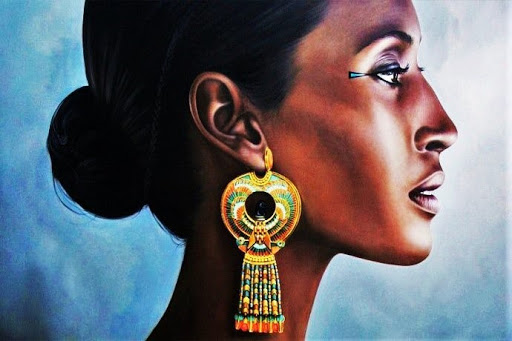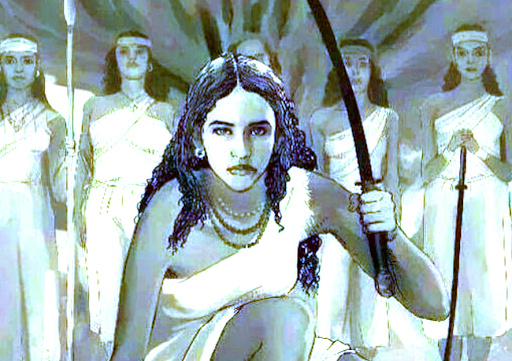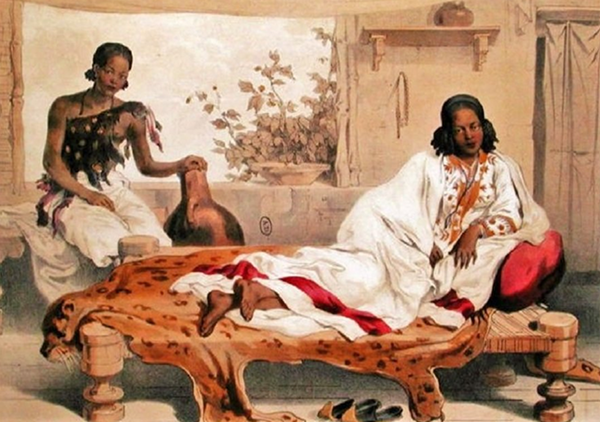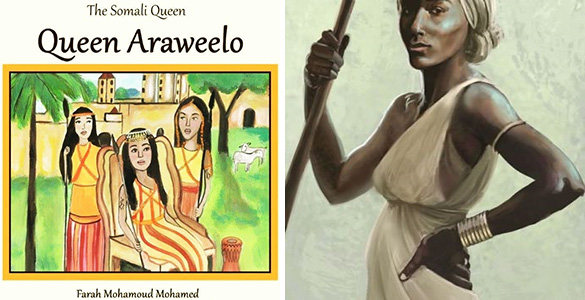 |
(1)
n번방 괴물들의 '성 착취'에 대한 청와대 국민청원이 500만명을 돌파했다. 이 숫자는 앞으로도 계속 늘어날 전망이다. 말 그대로 국민적 분노 폭발이다.
SNS 여론도 뜨겁게 달아올랐다. “괴물들의 뽕알을 까서 거세시키라”라는 말까지 나올 정도다. 법이 허용한다면, 나도 그렇지만, 마음 같아서는 그러고싶은 사람들이 적지 않을 것이다.
 |
| ▲This brave Somali queen fought to establish gender equality. (근디 왜 백인여자처럼 그린 겨?) |
(2)
아주 먼 옛날, 아프리카 소말리아 지역에 극강의 페미니스트 여왕이 있었다. 당시는 남존여비도 극강이던 시기다. 짐작이긴 하지만, 그런 세상에서 여자들은 성적 착취도 대단히 심하게 당했을 것이다.
통치자인 여왕도 오십보백보였다. 여왕조차 남존여비와 가부장제의 그 단단한 굴레를 벗어나기 힘들었다. 실제 여왕의 남편놈도 툭하면 지가 남자라며 지랄했다.
화가 난 여왕은 어느날 나라 전역의 여성들에게 외쳤다. “사내놈들의 뽕알을 까고 목을 매다시오!” 여왕의 외침에 호응하여 분노의 뽕알까기 반란이 일어났다.
이건 추측이다. 그 반란의 행위가 왜 하필 뽕알까기였을까. 뽕알이 사내의 상징이어서? 뽕알이 성착취의 최종 책임자이기 때문에?
 |
| ▲Queen Arawelo, The Somali Who Was The First Feminist Ruler. |
(3)
n번방에는 특히 20대 괴물들이 많았다. 괴물들은 지금 전전긍긍하고 있을 것이다. 어떤 정신 나간 자는 “한 순간의 실수” 어쩌구 하면서 좀 봐줘야 하는 거 아니냐고 한다. 말이 되는 소린가. 계정 만들고, 비트코인 계좌 열고..... 돈 보내고..... 어떻게 이 복잡한 과정, 험난한 여정이 한 순간의 실수일 수 있나.
하여간 괴물들아, 기다려라. 고대의 아프리카 여성들이 무기 챙겨 한국으로 오고 있는 중이다. 뽕알 조심해라.
 |
(부록)
여왕과 “뽕알을 까라!”
Caraweelo. 고대 소말리아의 여왕. 인습적 성역할과 가부장제 거부. 까불던 사내놈들 뽕알 까버림. 모계사회 주장. a legendary ancient Somali queen. The queen defied gender roles of the time. 이름 Caraweelo(Somali), Arawelo, Arraweelo 등.
가부장적 남편
남편은 여왕인 아내가 ‘남성의 영역’을 치고 들어오자 지랄. 여자는 집에서 살림이나 하라! During her reign, Arawelo's husband objected to her self-ascribed role as the breadwinner to all of society, as he thought women should be restrict themselves to merely domestic duties about the house and leave everything else to men.
반란
열받은 여왕은 나라의 모든 여성들을 향해 외쳤다. “사내놈들의 뽕알을 까서.....!” 사내놈들에게 착취당하고 억압받던 여성들이 들고 일어났다. In response, Arawelo demanded that all women across the land abandon their womanly role in society, and started hanging men by their testicles.
후일담
성평등 이룸. 더 나아가 오히려 여성상위 시대 도래. 남자도 육아 등 담당하게 됨. The strike was successful, forcing men to assume more child-rearing and creating a role reversal in society. Women took the superior roles men and men were oppressed and forced into subservience.
여왕의 사상
여자는 평화를 추구하는 존재인데 사내놈들은 정치질이나 하고 전쟁질이나 한다. Arawelo thought this role reversal was necessary since she saw women as natural peacekeepers. Growing up she believed that women were not treated well and the men were more often instigators, participants and conductors of war and politics. She not only fought for the liberation of women in feudal society but for the dominance of women as she saw them as better and more efficient leaders.
 |
| ▲ 저눔들이여? 양쪽에서 협공하세! |
(심화학습)
여왕의 Biography
Ralph E. Drake-Brockman was one of the first Western researchers to publish an account of Arawelo, in his 1912 book British Somaliland he states:
The legend says that thousands of years ago there lived in what is now the tract of country occupied by the Habr Toljaala tribe, a great black queen called Arawailo, who was greatly feared by her people owing to her eccentricities. Arawailo lived at a place called Murihi, so the story goes, for little save a huge mound of stones, under which she is said to lie buried, now marks the capital of her ancient kingdom. Towards the end of her life Arawailo began to show marked favour towards her own sex and great animosity towards her male subjects.
 |
| ▲ 여왕님, 어떤놈부터 깔까유? 갓갓이랑 박사부터 까거라. |
Semi-biographical tales which give many personal details of this queen are given. For instance, Arawelo's mother was said to have been called Haramaanyo; but no mention is made in the tales about who her father was. She was the first born of three daughters and natural heir to the dynasty. Like many female rulers, Arawelo fought for female empowerment; she believed society should be based on a matriarchy. There is no solid evidence of her existence other than testimony.
Defying Gender Roles
The queen defied gender roles of the time. Before she was queen, it is said that during the Buraan droughts, she and a team of women fetched water and hunted to prevent her town from migrating and to relieve starvation.
관리자 freemediaf@gmail.com
<저작권자 © 자유언론실천재단, 무단 전재 및 재배포 금지>

